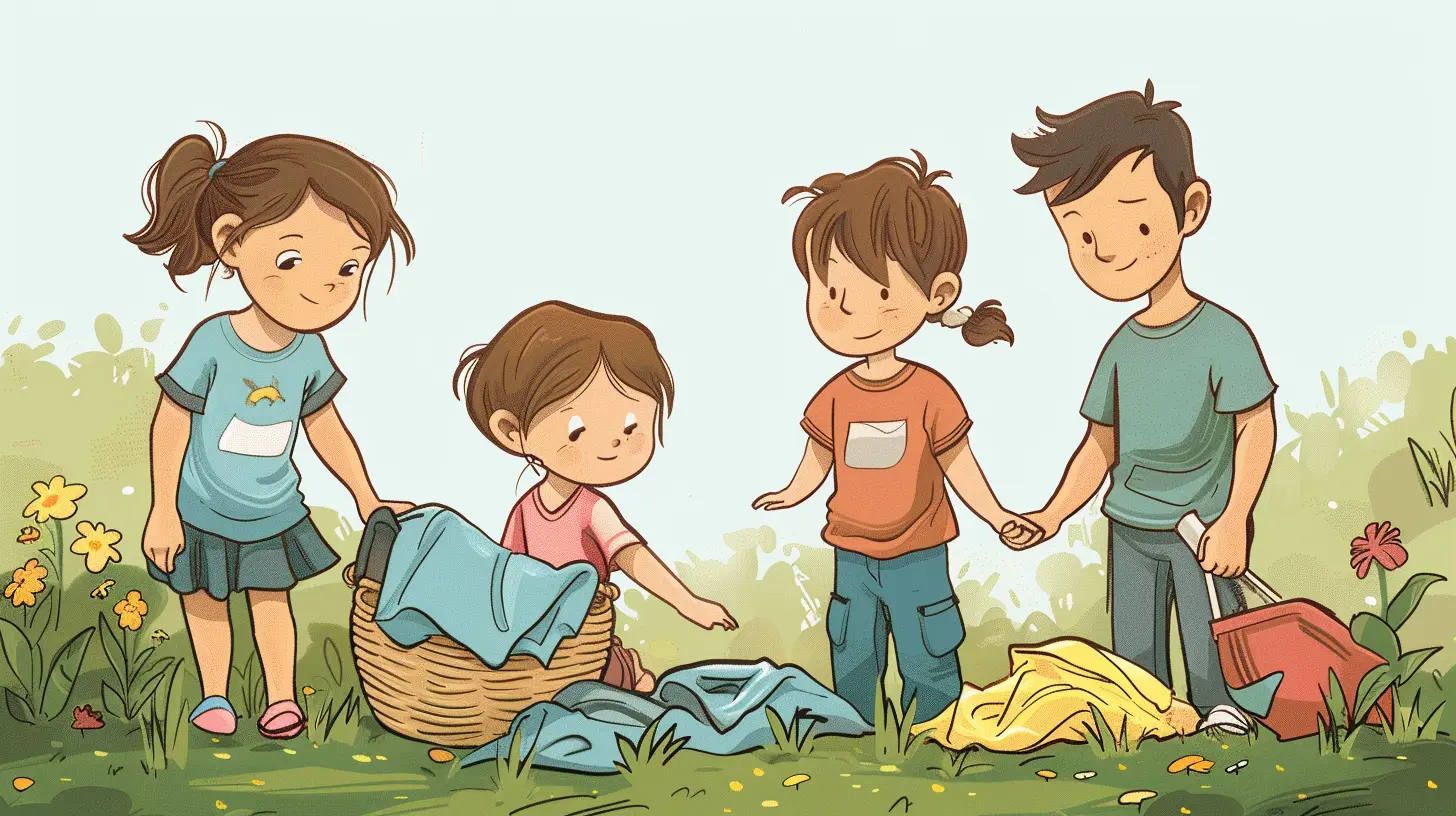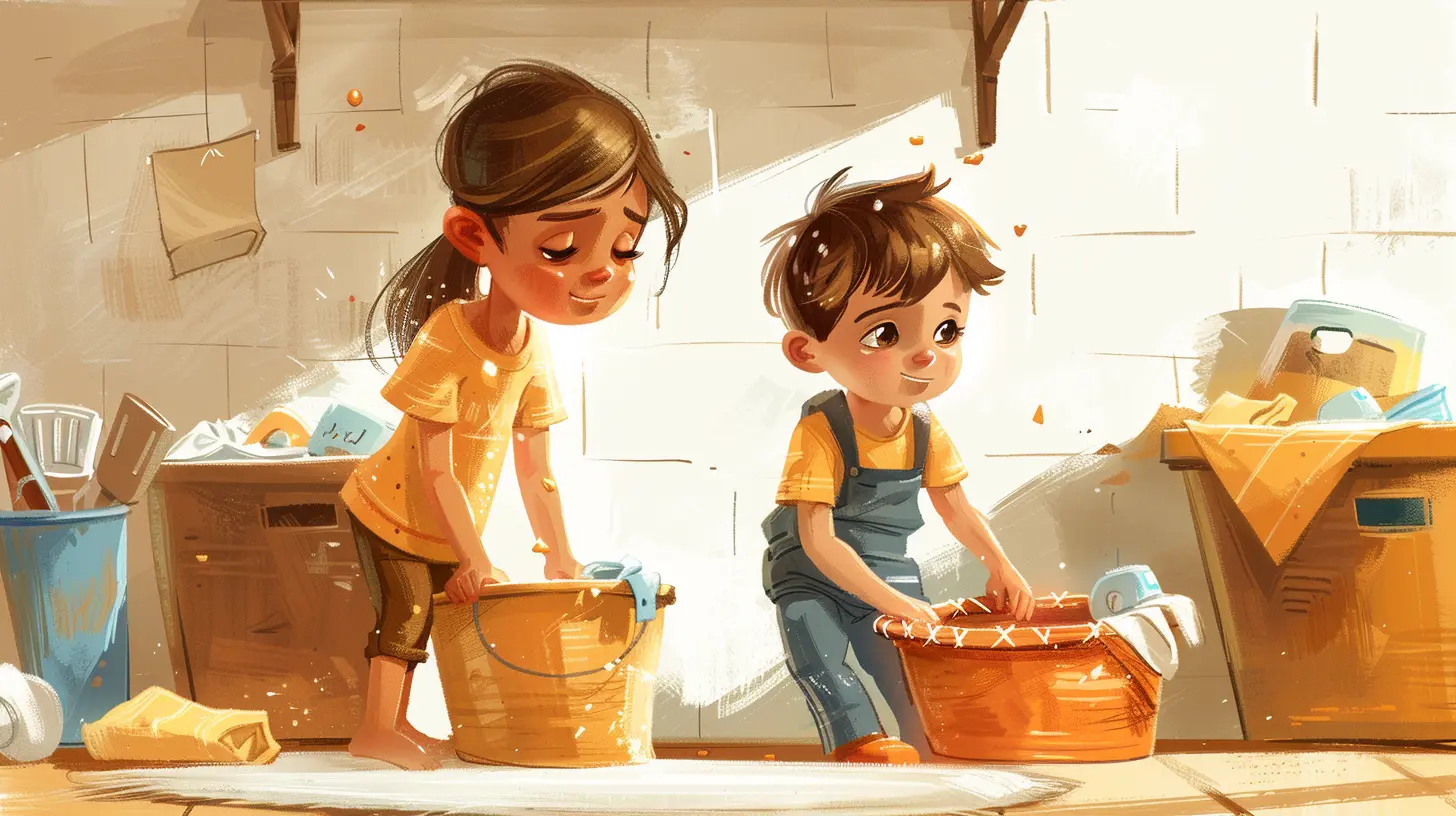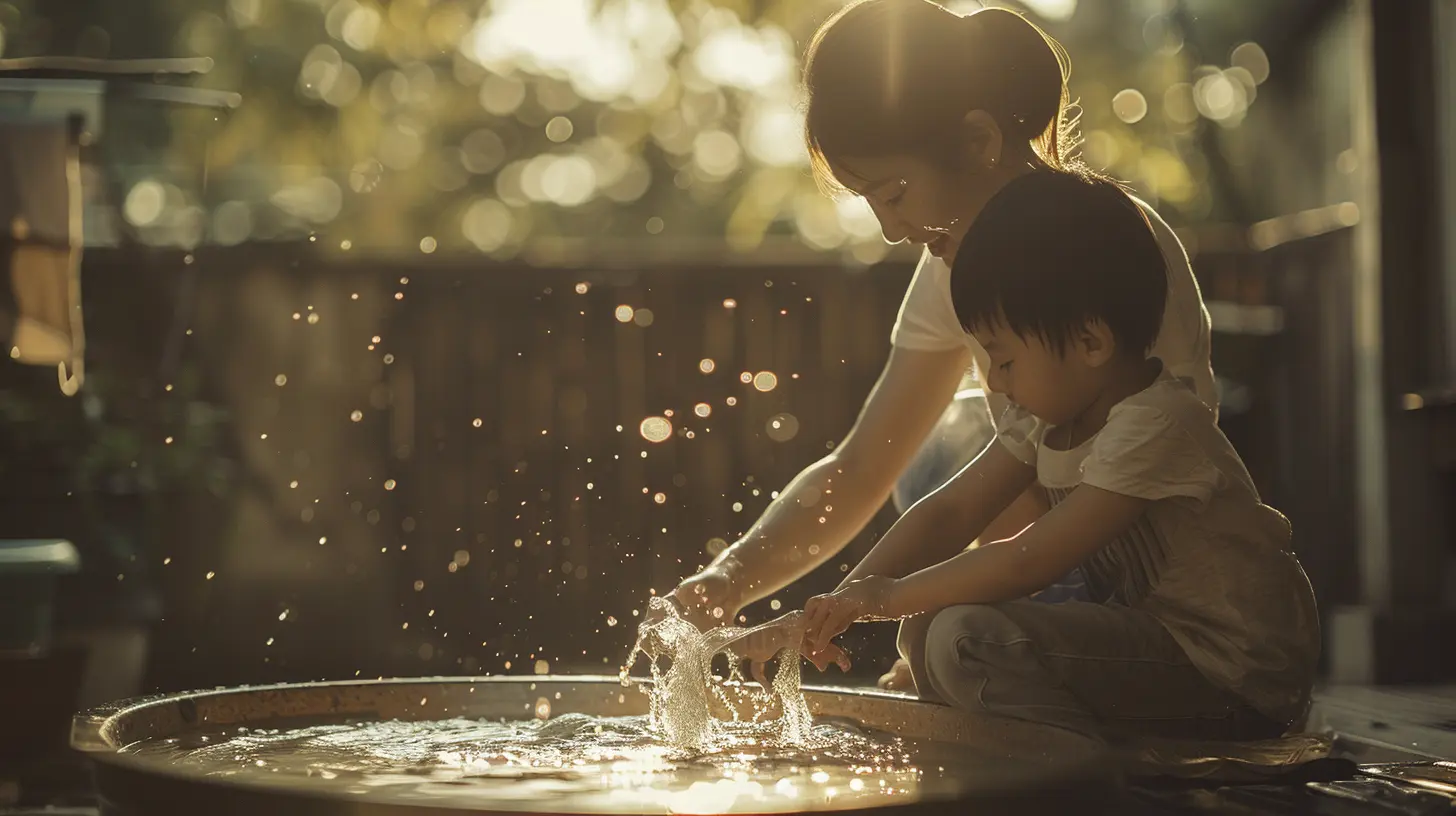Family Bonding Through Teamwork: Doing Chores Together
14 May 2025
Ever feel like getting your family to do chores is more like herding cats? We’ve all been there. But what if I told you that turning household tasks into a team effort can actually bring the whole family closer? Yep, teamwork isn't just for sports or workplaces—it’s a secret ingredient for stronger family bonds.
In this article, we’ll dive into how doing chores together can transform mundane tasks into meaningful family time, teach valuable life skills, and make your household run more smoothly (without the nagging). Ready to turn scrubbing, folding, and dusting into a bonding experience? Let’s go! 
Why Chores as a Family Matter
Chores often get a bad rap. No one wakes up excited to mop the kitchen floor, but tackling household tasks together does more than just keep your home tidy. It:- Fosters teamwork and responsibility – Kids learn accountability and how to work with others.
- Teaches life skills – Cooking, cleaning, and organizing are essential skills they’ll need as adults.
- Encourages communication – Working side by side opens up conversations and strengthens family connections.
- Reduces stress for parents – When everyone pitches in, household responsibilities feel lighter for everyone.
Think of it like a mini project where everyone has a role. Instead of feeling like a never-ending to-do list, chores become an opportunity for shared experiences. 
How to Make Chores a Team Effort
1. Turn Tasks into a Game
Let’s face it—kids (and adults) are way more willing to do something when it’s fun. Try turning chores into a friendly competition:- Use a timer and race to see who can pick up the most toys.
- Assign point values to different tasks and reward the highest scorer.
- Play music and turn cleaning into a mini dance party.
A little creativity can make even the most boring chores feel like a fun challenge.
2. Assign Age-Appropriate Tasks
Not all chores are created equal. A four-year-old can’t do the laundry, but they can help match socks. Assigning age-appropriate tasks helps kids feel involved without frustration.- Toddlers (2-4 years): Picking up toys, wiping spills, putting dirty clothes in the hamper.
- Young kids (5-8 years): Setting the table, feeding pets, dusting surfaces.
- Older kids (9-12 years): Vacuuming, washing dishes, folding laundry.
- Teens (13+): Cooking simple meals, mowing the lawn, managing laundry.
When everyone plays a role suited to their abilities, it creates a sense of teamwork rather than resentment.
3. Lead by Example
If your kids see you dodging chores like a game of hide-and-seek, don’t expect them to be eager helpers. Children mimic what they see, so show them that chores are a shared responsibility.Try working alongside them and treating everyday tasks as a normal part of life rather than a punishment. A little enthusiasm goes a long way!
4. Create a Chore Chart
Visual reminders help keep everyone accountable. A chore chart can:- Clearly outline responsibilities.
- Rotate tasks so no one gets stuck with the same job every time.
- Show progress and encourage consistency.
Let kids decorate their own charts with stickers or drawings; it makes the whole thing feel more personal and rewarding.
5. Set a Chore Routine
Spontaneous cleaning sprees? Not ideal. Setting a regular routine—like 15 minutes of tidying after dinner or cleaning bedrooms every Saturday—creates consistency.When chores become a habit rather than an unexpected demand, there’s less pushback. Try easing into it with short time blocks, so it doesn’t feel overwhelming.
6. Work Together, Not Just Side by Side
Ever noticed that chores feel lighter when you’re doing them with someone? That’s because teamwork adds an element of togetherness. Instead of dividing and conquering, tackle bigger tasks as a team.- Wash dishes together and chat about your day.
- Organize the garage as a family and make it a puzzle-solving challenge.
- Cook a meal together, assigning different steps to each person.
Moments spent working side by side naturally lead to meaningful conversations and shared laughter—things that wouldn’t happen if everyone worked solo.
7. Praise and Reward Effort
Let’s be real—positive reinforcement works wonders. Instead of focusing on perfection, recognize the effort your kids put into their tasks.A simple “Great job helping with the laundry today!” or “I love how you set the table so neatly” builds confidence and makes them more likely to help next time.
Want extra motivation? Create a reward system where completed chores earn points toward a fun family activity, like a movie night or weekend outing. 
Unexpected Benefits of Doing Chores Together
1. Teaches Responsibility Without Lectures
Nobody likes being told what to do. But when chores are a group effort, kids naturally learn responsibility without feeling like they’re being bossed around. They see firsthand how their contributions make a difference.2. Strengthens Communication and Problem-Solving Skills
Chores require coordination—who’s doing what, when, and how? Working together teaches kids how to communicate, resolve conflicts, and negotiate solutions. (No, "I did it last time!" doesn’t count as a valid excuse.)3. Prepares Kids for the Real World
Let’s be honest—no one wants to send their kids off to adulthood without knowing how to do laundry or clean up after themselves. Teaching these skills early ensures they’ll be equipped for independent living.4. Creates Lasting Family Memories
Believe it or not, some of the best memories happen during the most ordinary moments. Maybe it’s the time you all laughed while folding socks or the silly songs you made up while washing dishes. These small moments add up to a stronger family bond.
Overcoming Common Challenges
"My Kids Hate Doing Chores!"
Yep, most do. But making it fun and giving them choices helps. Let them pick between two tasks or allow them to choose the music while cleaning—giving a sense of control makes cooperation easier."They Take Forever to Do Simple Tasks!"
Kids aren’t naturally efficient cleaners (shocker, right?). Instead of getting frustrated, break down tasks into smaller steps and offer guidance. With practice, they’ll get better and faster."I'm Tired of Nagging!"
Nagging doesn't work—it just sparks more resistance. Instead, use tools like chore charts, rewards, or natural consequences (e.g., no clean laundry means no favorite shirt for school).Making Chores Meaningful
At the end of the day, chores aren’t just about keeping the house clean—they’re about teaching teamwork, responsibility, and cooperation. When families tackle tasks together, it turns daily routines into special bonding moments.So next time you’re tempted to just do it all yourself (because, let’s face it, it’s faster), remember: involving your family not only lightens your load but also strengthens your family dynamic. Who knew folding laundry could be a bonding experience?
Now go grab your family, put on some fun music, and turn those chores into a team-building adventure. You’ve got this!
all images in this post were generated using AI tools
Category:
Chores For KidsAuthor:

Austin Wilcox
Discussion
rate this article
3 comments
Callisto McElroy
I love this perspective on chores! Making them a team activity not only teaches responsibility but also strengthens family bonds. Great insights, thank you!
May 18, 2025 at 2:24 PM

Austin Wilcox
Thank you so much! I'm glad you found the perspective helpful. Teamwork truly can make chores more enjoyable and foster stronger family connections!
Archer Clarke
This article beautifully highlights the importance of teamwork in family life. Engaging in chores together not only fosters responsibility but also strengthens bonds. It's a simple yet profound way to create lasting memories as a family.
May 17, 2025 at 5:02 PM

Austin Wilcox
Thank you for your insightful comment! I’m glad you found the article resonates with the importance of teamwork in family bonding.
Talis McQuaid
What a wonderful reminder that chores can be a great opportunity for bonding! Involving the whole family not only lightens the load but also creates cherished memories. Let’s embrace teamwork and build stronger connections together!
May 16, 2025 at 4:02 PM

Austin Wilcox
Thank you for your thoughtful comment! Embracing teamwork in chores truly transforms the experience into a joyful bonding opportunity for families.



